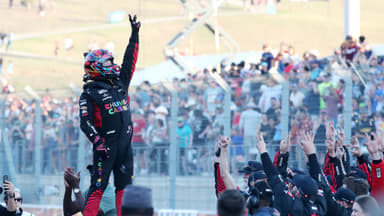Michael Jordan will always be known as a Bull. It’s where he was drafted. It’s where he retired in 1993. It’s where he won six championships. It’s where he retired in 1999. The Jordan iconography in Chicago is just a part of the city at this point. He is a god in Chicago. However, Jordan has also had a huge impact in an East Coast city. It’s very likely that NBA basketball in Charlotte, North Carolina, would have died without Michael Jordan.
Advertisement
Jordan’s basketball career actually predates the creation of the Charlotte Hornets, as George Shinn founded the Hornets franchise just one year after MJ was drafted in 1984. Though the team didn’t play its first game until 1988, the Hornets were immediately the darling of the city.
The franchise frequently led the league in ticket sales and regularly sold out the Charlotte Coliseum throughout the 14 years of George Shinn’s leadership. After a kidnapping case saw Shinn’s public perception tank, the billionaire abandoned the city of Charlotte and moved the Hornets to New Orleans.
From 2002 to 2004, Charlotte had no pro basketball team. They had the Duke and UNC rivalry on the collegiate level, but the NBA had left them despite the market’s stature and support.
Enter Michael Jordan. “One of the biggest reasons I bought the team is that, initially, I thought the team was under-operated because they were not connected to the community,” said the former Tar Heel. “Charlotte led the league in attendance for 10 years, which was a huge economic boon for that city… They had good teams that went to the Eastern Conference Finals; they won 50 games. They had potential, and it got lost.”
Even when Charlotte got their team back, it was the hideously branded Charlotte Bobcats. The team was terrible and, in Jordan’s words, had no connection to the community. It’s even speculated that the majority owner, Robert “Bob” Johnson named the team after himself.
“When Charlotte moved to New Orleans, Charlotte was without a team.” Jordan remembered. “Then you had an owner come in who was not from North Carolina—and we’re good friends, Bob Johnson and I—that disconnected itself from the community, angered the community, to where they would not support it.”
Jordan knew the city loved their basketball. Despite the initial negative response to the Bobcats, he knew there was still a love for the sport in the city he knew so well. It’s why he bought the team from Johnson for a reported price of $275 million in 2010. MJ believed in the city. In a show of good faith, the city loved him back. Despite the lack of any sustained success, Charlotte has continued to rank high in attendance.
In 2023, Jordan sold his majority share in the Hornets. He left with many hopes still unreached. While it was the end of an era, it set a precedent for players to become partial owners of teams.
Player-to-owner pipeline is now a possibility
Jordan’s status of being the first former player to become an owner was not always met with positivity. In a 2014 article for ESPN, Jordan admitted that “his road had not been without bumps and bruises.” “Am I an owner that made mistakes? Yes. Am I an owner that made good decisions? I like to assume so, yes,” he added.
However, despite all the difficulty, Jordan continues to hope that he is the first of many. While there haven’t been any other majority owners who were players, there has been a trend of NBA players becoming partial owners in other leagues. LeBron James owns a stake in the soccer team Liverpool FC, and JJ Watt, the former Texans star, is invested in Burnley FC.
While Jordan took it to the teeth while heading the Hornets, he has set a standard that would allow others to follow in his footsteps. Ultimately, that would be his dream scenario.







